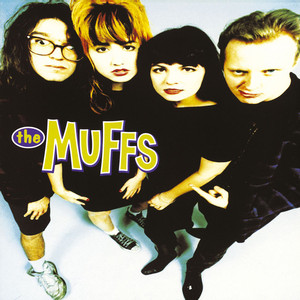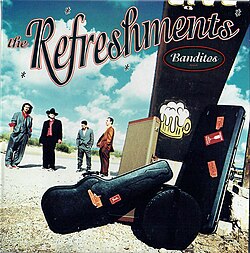 “Unforgettable” by Nat King Cole and Natalie Cole is one of the most poignant and remarkable musical collaborations in history—not just for the beauty of the music but for what it represents across time, family, and technology. Originally recorded in 1951 by the velvety-voiced Nat King Cole, “Unforgettable” was already a timeless standard by the time his daughter Natalie revisited it decades later. But in 1991, Natalie took a bold and deeply emotional step: she created a virtual duet with her late father, merging generations, voices, and emotions into a hauntingly beautiful rendition that would etch itself into pop culture memory forever.
“Unforgettable” by Nat King Cole and Natalie Cole is one of the most poignant and remarkable musical collaborations in history—not just for the beauty of the music but for what it represents across time, family, and technology. Originally recorded in 1951 by the velvety-voiced Nat King Cole, “Unforgettable” was already a timeless standard by the time his daughter Natalie revisited it decades later. But in 1991, Natalie took a bold and deeply emotional step: she created a virtual duet with her late father, merging generations, voices, and emotions into a hauntingly beautiful rendition that would etch itself into pop culture memory forever.
At its core, “Unforgettable” is a love song—tender, refined, and exuding the kind of warmth that can only come from a deeply sincere delivery. The original version, performed by Nat King Cole, is a masterclass in restraint and control, with his buttery vocals floating atop gentle orchestration. Written by Irving Gordon and originally arranged by Nelson Riddle, it has all the sophistication and elegance of a bygone era. The lyrics are simple but resonate profoundly: “Unforgettable, that’s what you are / Unforgettable though near or far.” These words serve not only as romantic sentiment but, in the hands of the Coles, as a testament to the bonds between family, between legacy and present, between memory and presence.
Nat King Cole’s 1951 version was modestly successful on the charts, but its real power lay in how it endured. Nat, with his sophisticated phrasing and crystal-clear diction, delivered a style that transcended genre boundaries—blending jazz, pop, and R&B into a distinctive sound that made him one of the first Black artists to truly cross over into mainstream American popular music. His legacy was cemented not only through his string of hits like “Mona Lisa” and “L-O-V-E,” but also as a cultural pioneer. He hosted his own nationally televised variety show, breaking racial barriers in 1950s America, even as he endured racism and segregation. Every note of “Unforgettable” came not only from a master vocalist but from a man who knew how hard-won his presence on the national stage really was.
Natalie Cole had her own impressive career before the duet—garnering praise in the 1970s for songs like “This Will Be (An Everlasting Love)” and “Our Love.” But her career had also been marked by personal struggles, including battles with addiction and a complex relationship with her father’s legacy. Nat had died of lung cancer in 1965 when Natalie was just fifteen years old, and like many children of famous parents, she often found herself in the shadow of his enormous fame. For years, she intentionally distanced herself from his material, forging her own path through R&B, soul, and pop. But eventually, the pull of heritage and artistry brought her back to where it all began.
The idea to create a posthumous duet was ambitious in the early 1990s. Technology had advanced, but digital duets were rare and fraught with technical and ethical challenges. Could a daughter who lost her father decades prior convincingly and respectfully harmonize with his old recordings? Would it feel authentic or contrived? When Natalie Cole released Unforgettable… With Love in 1991, those questions were immediately answered. The title track, a reconstructed duet using Nat’s original vocal master and Natalie’s new performance, wasn’t just technically brilliant—it was emotionally devastating. Natalie’s voice, rich and full, wound itself around her father’s as though they had always sung together.
There’s a powerful moment early in the track where Natalie softly sings a line, and then Nat responds, as if from the great beyond. The dialogue in the song feels organic, loving, and incredibly moving. She isn’t just singing with a legend; she’s singing with her father. That deeply personal context elevated the recording from a clever production to a generational statement. Suddenly, “Unforgettable” became more than a love song—it became an elegy, a tribute, and a bridge across decades.
Critics and audiences responded immediately. The duet became a massive hit, peaking at No. 14 on the Billboard Hot 100 and No. 3 on the Adult Contemporary chart. It won three Grammy Awards in 1992, including Song of the Year, Record of the Year, and Best Traditional Pop Vocal Performance. Natalie Cole’s career experienced a powerful resurgence, and the album sold over seven million copies worldwide. But more importantly, it introduced a new generation to Nat King Cole and reminded older generations of the magic that his voice still held.
Part of what makes the duet work so well is the balance of reverence and innovation. Natalie doesn’t try to overshadow her father or “update” the song beyond recognition. She lets his voice lead, fills in the gaps, and adds harmonies and warmth. Her respect for the original is clear, but she also adds her own personality—modern, jazzy, and slightly soulful. The orchestration is lush, arranged by Ralph Burns, and produced with care by David Foster, one of the most successful producers of the era. The result is a recording that feels timeless, not nostalgic or gimmicky. It speaks across eras without anchoring itself to any particular moment.
“Unforgettable” also stands as a testament to how music can preserve memory. There’s something profoundly universal in Natalie’s decision to reconnect with her father through song. Everyone who has lost someone dear can understand the urge to speak with them again, to sing with them, to be with them, even if only in sound. Technology gave Natalie Cole the gift of time travel, of collaboration, of intimacy with a departed loved one. It’s no wonder the recording continues to bring listeners to tears.
There’s an almost spiritual quality to the performance. Music has always been a space where the sacred and the emotional intertwine, and “Unforgettable” taps directly into that space. When Nat’s voice first enters, clear and steady despite being recorded four decades prior, there’s a sense of awe. That such a voice was preserved, and now lifted again in harmony with his daughter, speaks to the enduring power of recording. It’s not just about notes and rhythms—it’s about presence. In that recording, Nat King Cole is alive again, if only for three minutes and thirty seconds.
The success of “Unforgettable” had a ripple effect, too. After the duet’s success, there was a renewed interest in Nat King Cole’s catalog. Box sets, remasters, and biographical tributes followed. For many listeners, especially those born after his death, the duet was their first exposure to his brilliance. And Natalie Cole, far from being overshadowed, emerged with renewed strength as a vocal powerhouse in her own right. Her album Unforgettable… With Love would become the defining record of her career, even as she continued releasing new material.
Over the years, “Unforgettable” has been used in countless films, weddings, memorials, and special moments, further entrenching it in the emotional fabric of American culture. Its message is simple but profound: some people, some voices, some bonds, are unforgettable. It’s hard to imagine a more apt pairing of voice and sentiment.
In live performances of the duet, Natalie would often sing her part on stage while video footage of her father played behind her. These performances were often the emotional highlight of her concerts. Audiences responded with reverent silence or thunderous applause, and Natalie herself often looked visibly moved. In interviews, she would speak candidly about the complexity of the experience—how it healed her, how it made her feel closer to her father, and how it allowed her to share something intensely personal with the world.
“Unforgettable” continues to live on in an age where posthumous duets are more common. Technology has advanced to the point where holograms and AI-generated vocals can mimic the deceased with eerie accuracy. But none of these innovations have quite matched the emotional gravity of the Nat and Natalie Cole duet. Its impact wasn’t about novelty—it was about authenticity. Natalie’s love for her father is what made the duet work. It wasn’t a production trick. It was a communion.
The story of “Unforgettable” is, ultimately, a story of music’s ability to transcend. It transcends time, death, genre, and generation. It connects parent to child, artist to audience, past to future. In many ways, it is one of the purest expressions of what makes music essential to human experience. Every person who has heard the song likely remembers where they were, or how it made them feel, or who they thought of. It’s the kind of song that doesn’t just play in the background—it moves into the foreground of memory.
Nat King Cole’s legacy as one of the great vocal stylists of the 20th century is assured. His contributions to American music—and to social progress—are vast. Natalie Cole’s courage in stepping into that legacy and finding her voice within it is equally powerful. Together, their voices on “Unforgettable” represent not only a perfect musical match but a perfect emotional truth: that love, music, and memory endure.
Even today, over 30 years since the duet and more than 70 since the original recording, “Unforgettable” still sounds fresh. Its orchestration, its phrasing, and its message haven’t aged. That’s perhaps the highest compliment one can give to a piece of music. It doesn’t feel old. It feels eternal.
Unforgettable, indeed.


